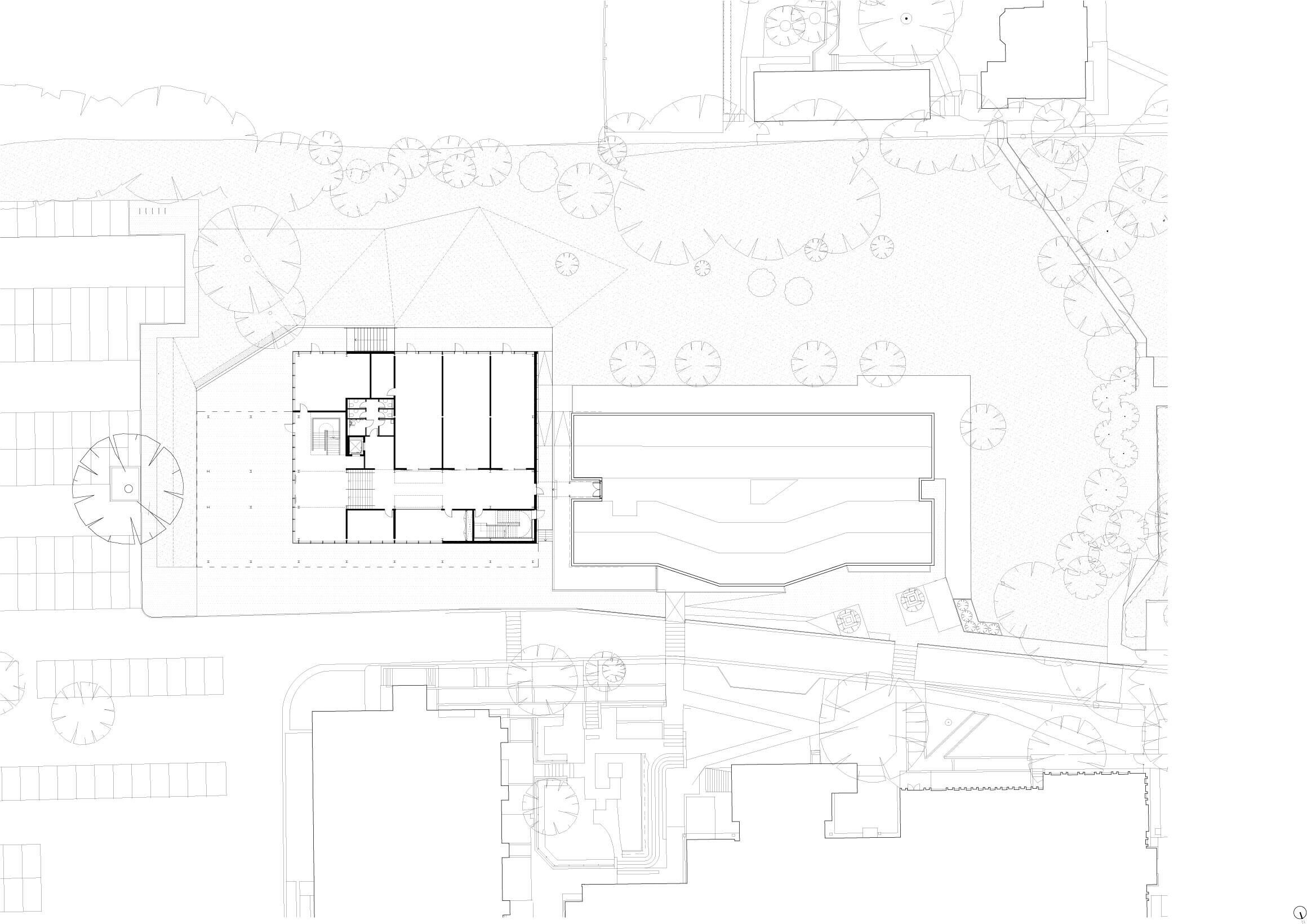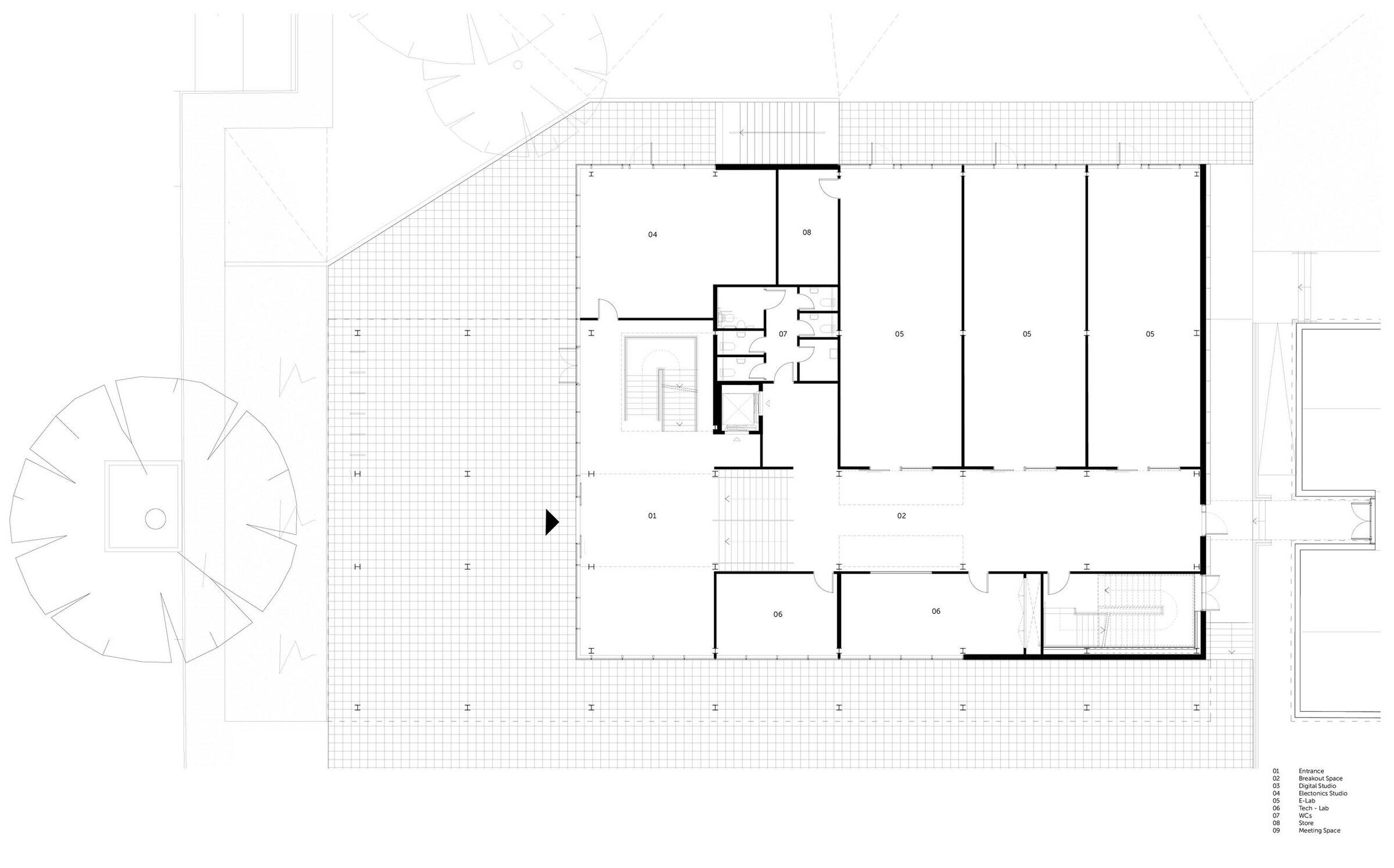Coffey Architects has completed a new digital learning centre for City College Norwich,providing space for the college’s technology, engineering and design courses in one building. The building also forms the landing space and formal entrance to the campus, which has grown overtime to become one of the largest colleges in the country for further and higher education.The factory-influenced design positions digital technologies as a contemporary industry and shifts from a standard school-like environment, offering a creative and light filled atmosphere to energise students.
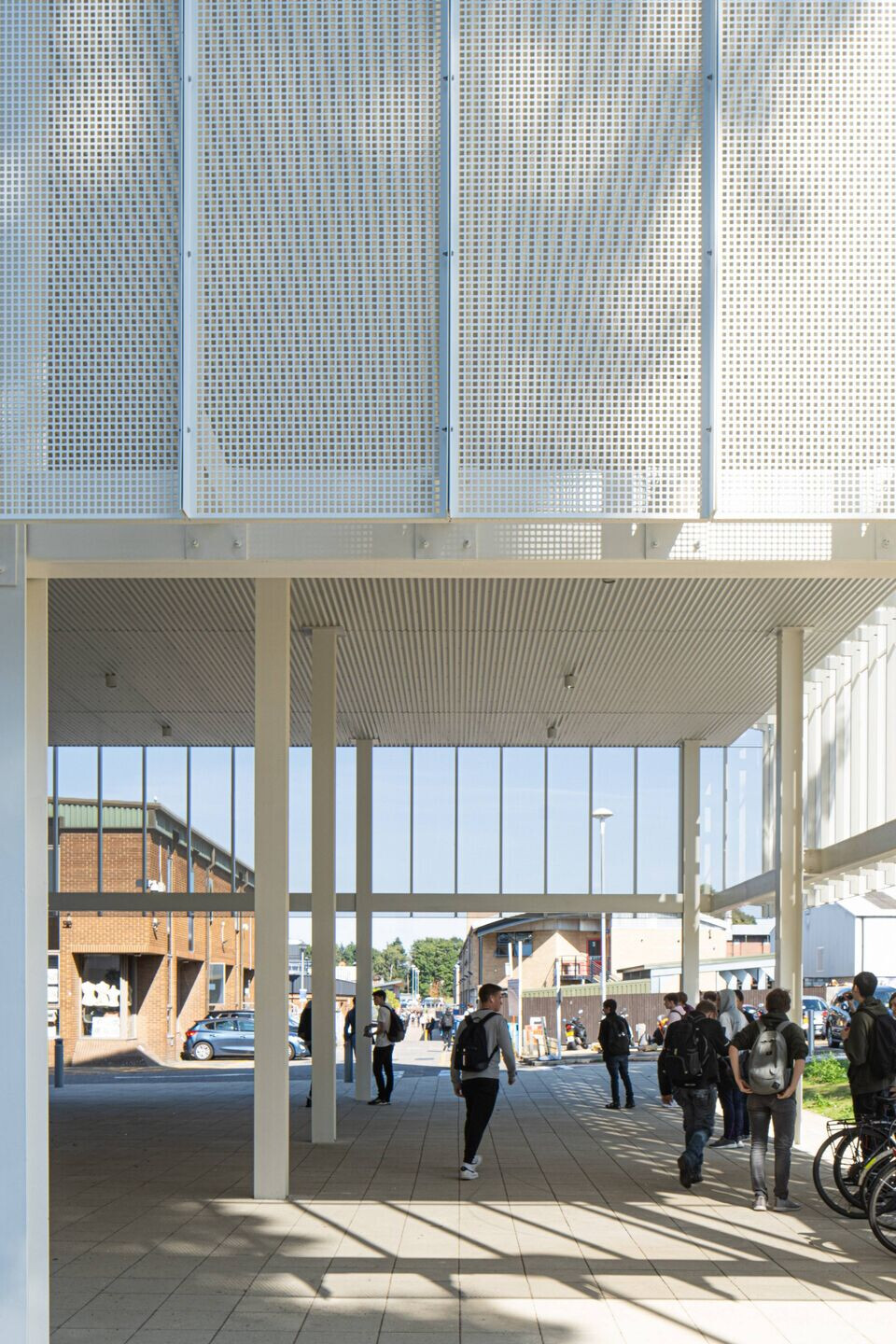
The Digi-Tech Factorycomprises 2,877sqm of teaching, learning and social space for nearly 500 students, including robotics labs, digital studios and e-labs, in addition to general classrooms and support spaces. The building also features covered external areas that promote social interaction and protect staff and students from the weather on rainy days. Situated next to the black timber-clad Creative Arts Building (completed in 2013 by BDP), the Digi-Tech Factory complements its neighbour by forming a counterpoint in its design. In the spirit of industrial design the envelope is comprised from off-shelf components, incorporating an exposed steel frame grid and a thermal envelope of lightweight composite panels and glass. With its externalscreenof white powder-coated aluminium mesh or corrugated aluminiumthat unifiesthe building form andmodulates the interior and exterior environments, this is a building of lightness and air.
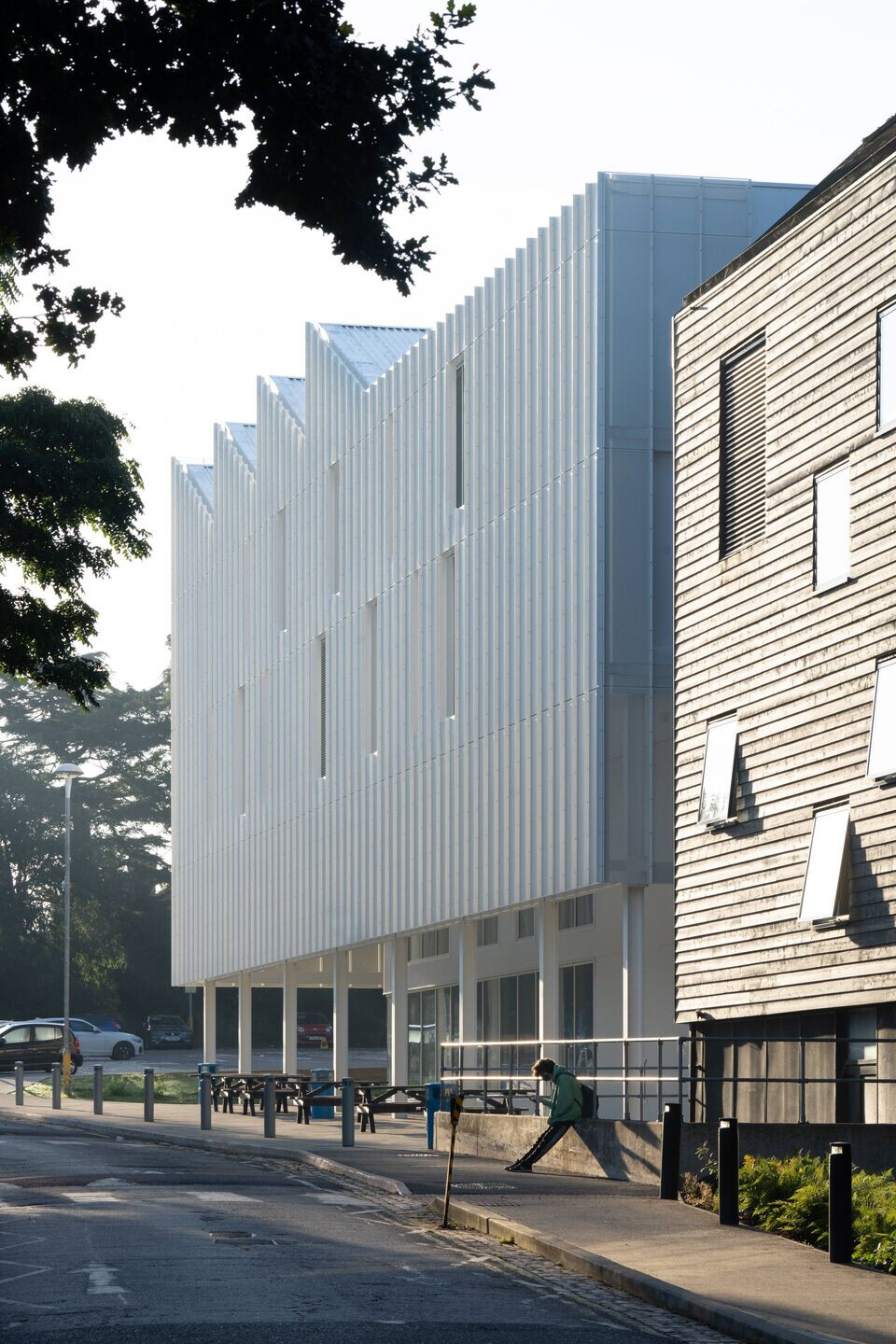
Light manipulation is a central principle of Coffey Architects’ design practice, often explored, as here, through the use of an external screen to provide light, texture variation and environmental control. In this case the building’s panels play with both natural and artificial light depending onthe time of day: by day, natural sunlight is diffused through the panels to the interior, and by night, light from the spaces within the building activate the façade, extending the building’s relationship with the external campus. In a nod to the disciplines studied within the building, the laser-cut perforation pattern on these panels takes its inspiration from binary code and historic computer tape.
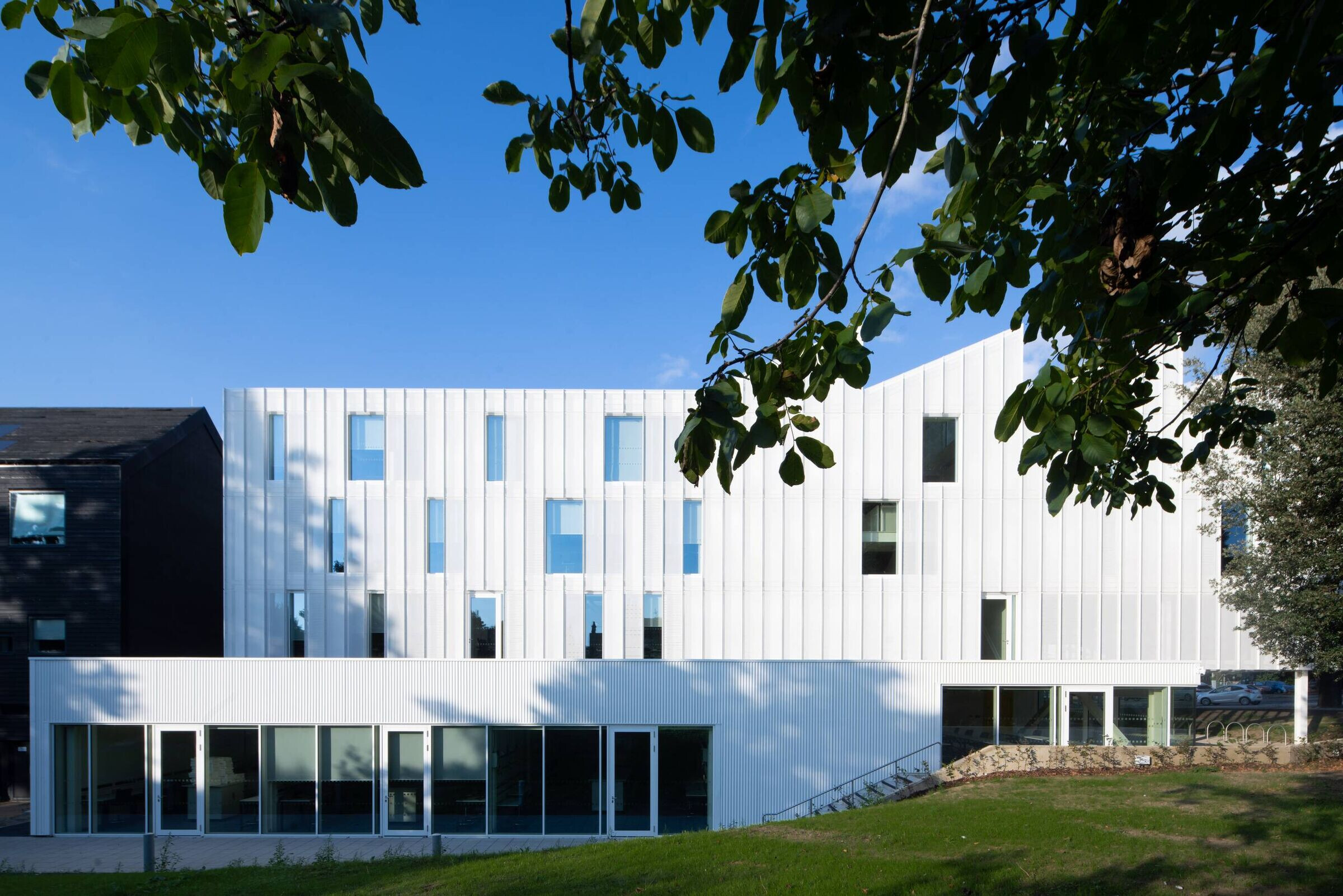
The entrance and reception area arelocated centrally to the building, facing south east, and accessed through the covered external plaza. The main stair and lift are visible from this lobby, and the large roof light and atrium above floods the space with light. This simple layout sets up an open and welcoming learning environment.
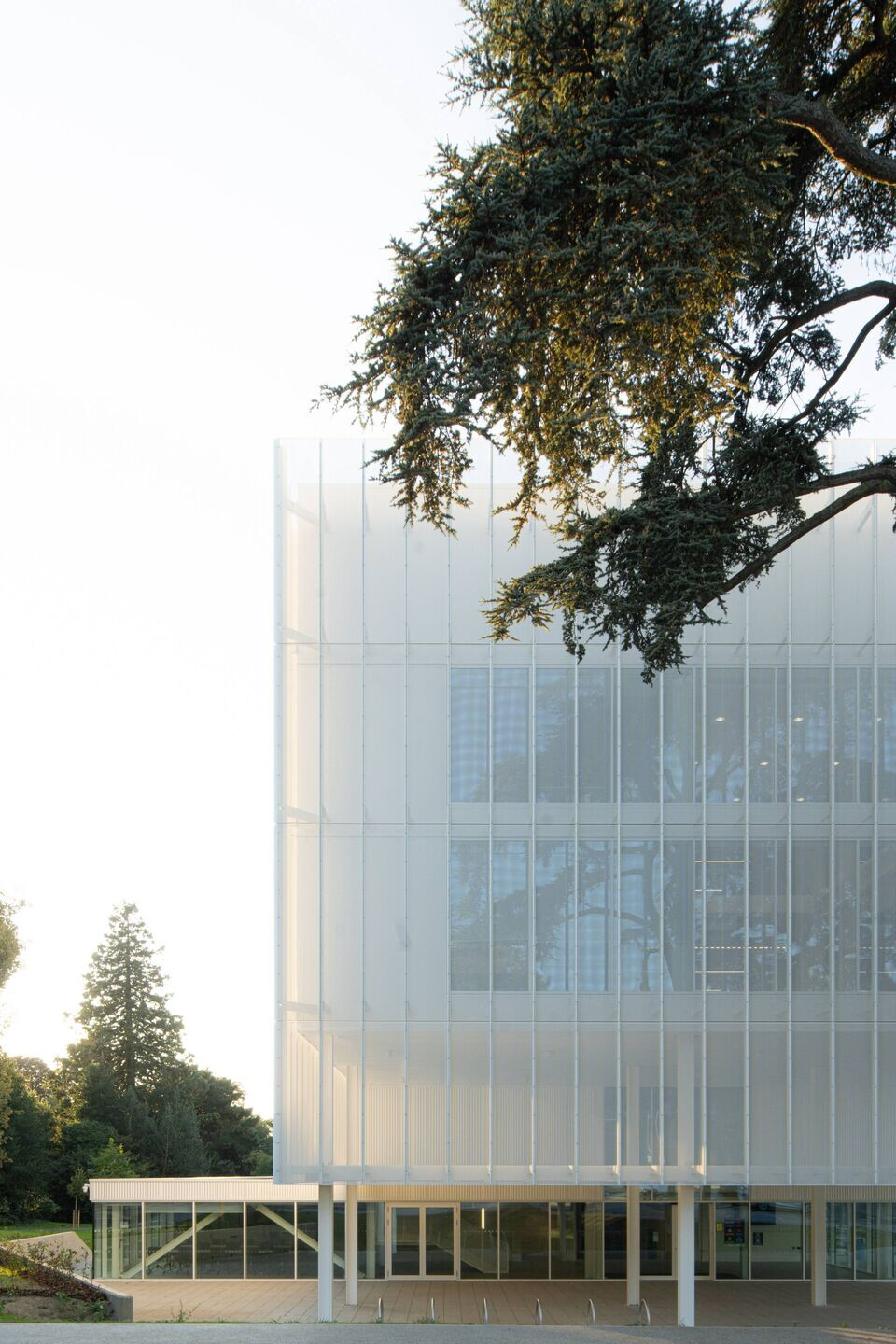
As you move through to the upper floors, the feelings of light and airiness continue despite a small footprint, achieved through a combination of light wells in the roof at each end of the corridors and moments of double height spaces on each floor.
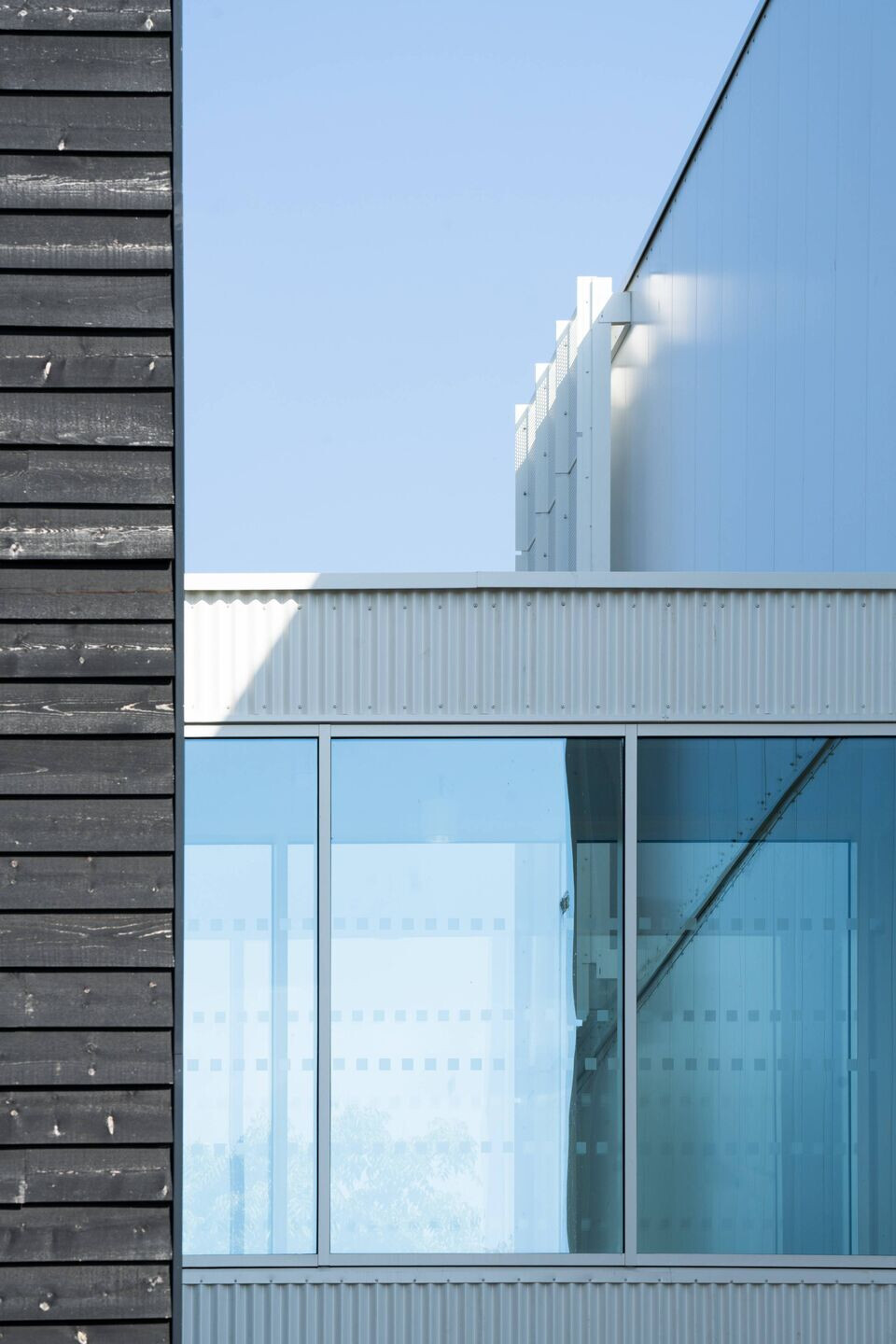
There are floor to ceiling windows along the internal corridors, providing views into the lab spaces as you pass through the building, inspiring creativity through observational learning. The lower ground floor, which sinks into the site’s topography, also features floor to ceiling windows in the laboratories looking out onto the garden space.
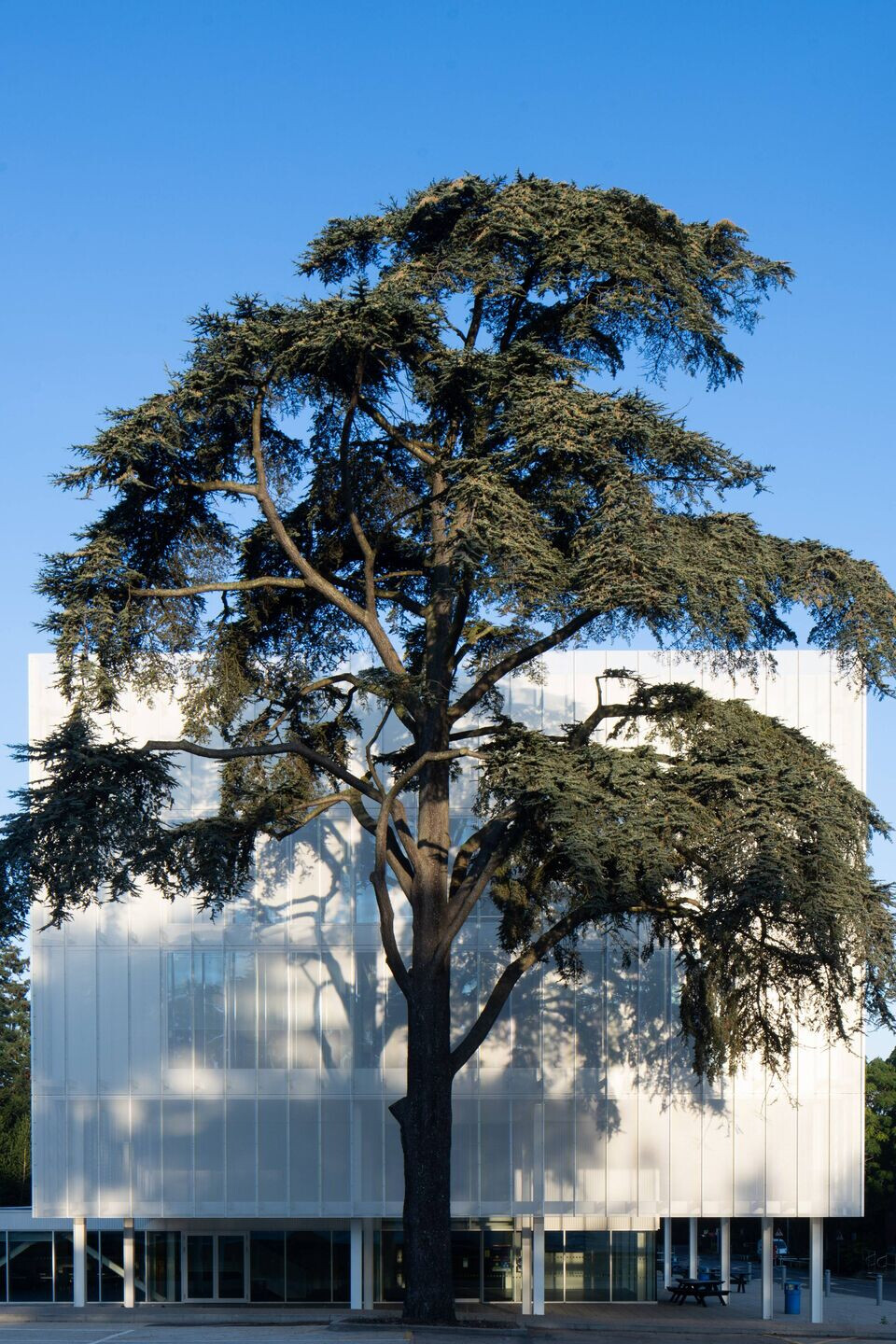
The interior design, reflecting the narrative of a digital ‘factory’, features an exposed structureand services, allowingstudents, staff and visitors to understand how the building works through its visible mechanics. Importantly for the building’s educational use, this also allows flexibility for services and facilitating future modifications. Like the exterior, most of the internal space is painted white, although there are flashes of yellow used throughout to mark the building’s openings.
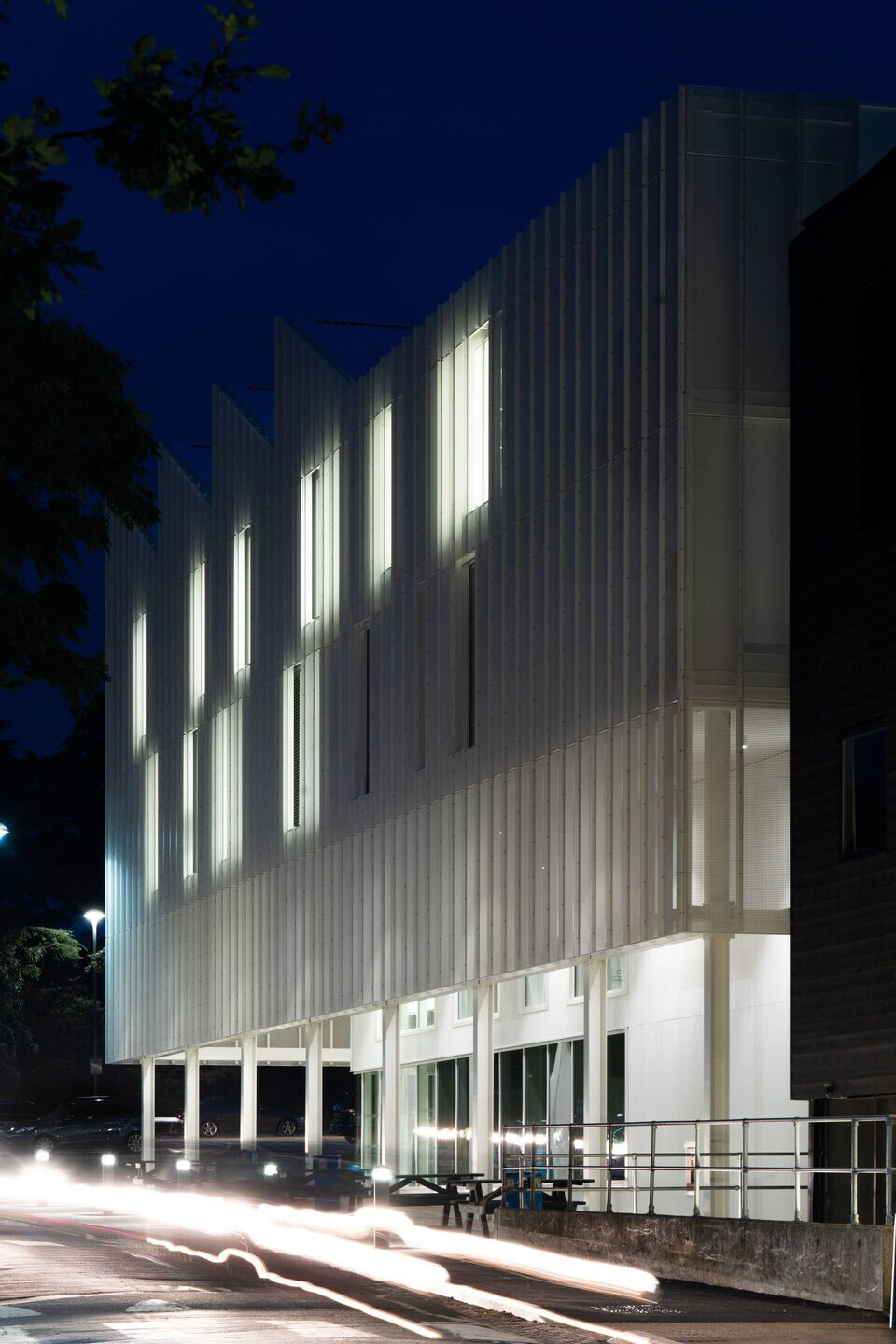
With social interaction playing a key aspect of the scheme, there are plenty of opportunities for socialising within the building.Whilst the covered plaza serves as the primary social space in the building, details such as extra-wide corridors are designed to encourage socialising in between lessons and tutorials, and the surrounding landscape has been enhanced to increase accessibility to outdoor social space.
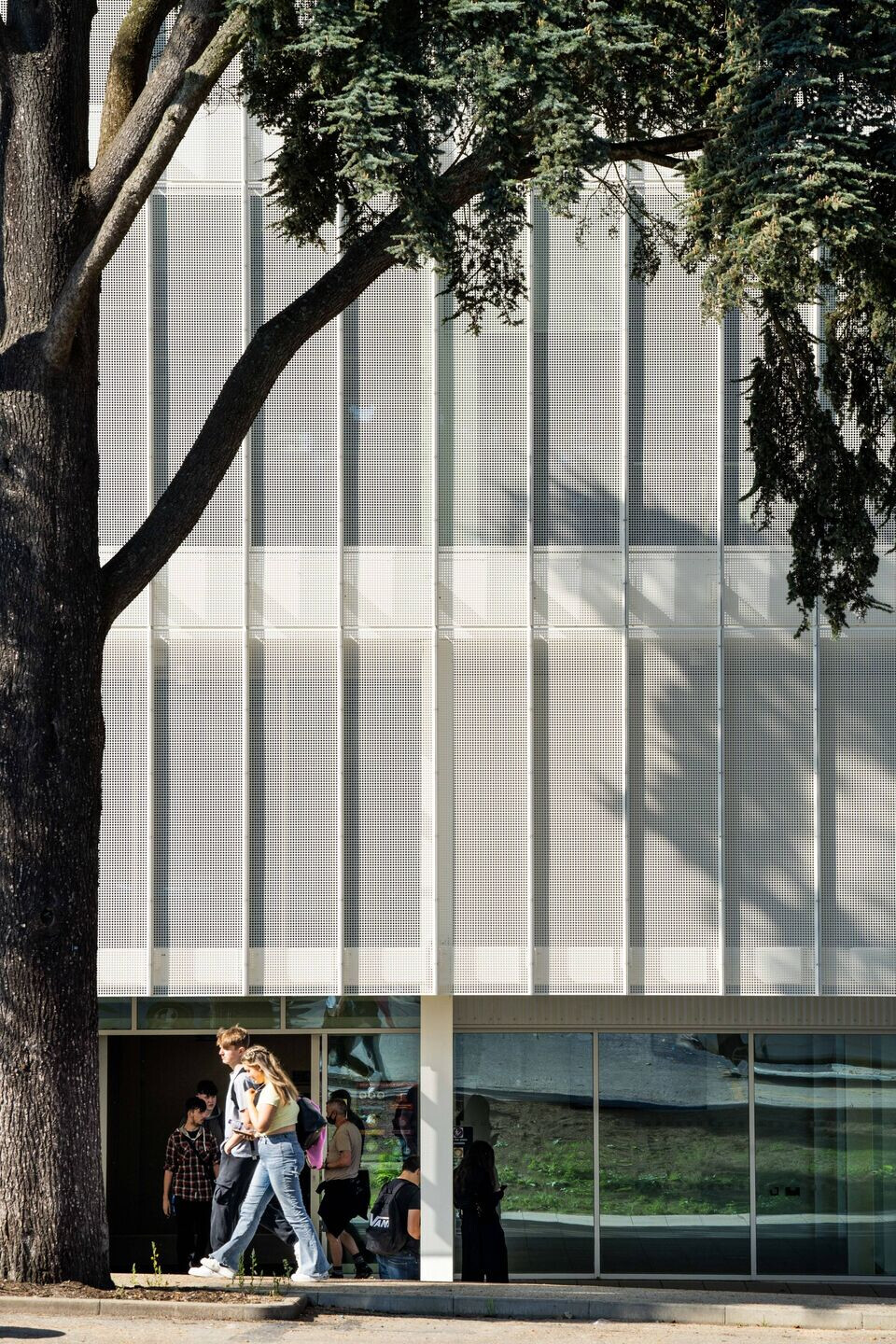
The scheme also includes improved cycle and pedestrian pathsas well as adjusted parking spaces to improve traffic flow. Each of these different zones are clearly demarcated with a cohesive palette of materials to reduce visual clutter whilst aiding wayfinding, with bollards in aluminium and cycle racks in stainless steel.
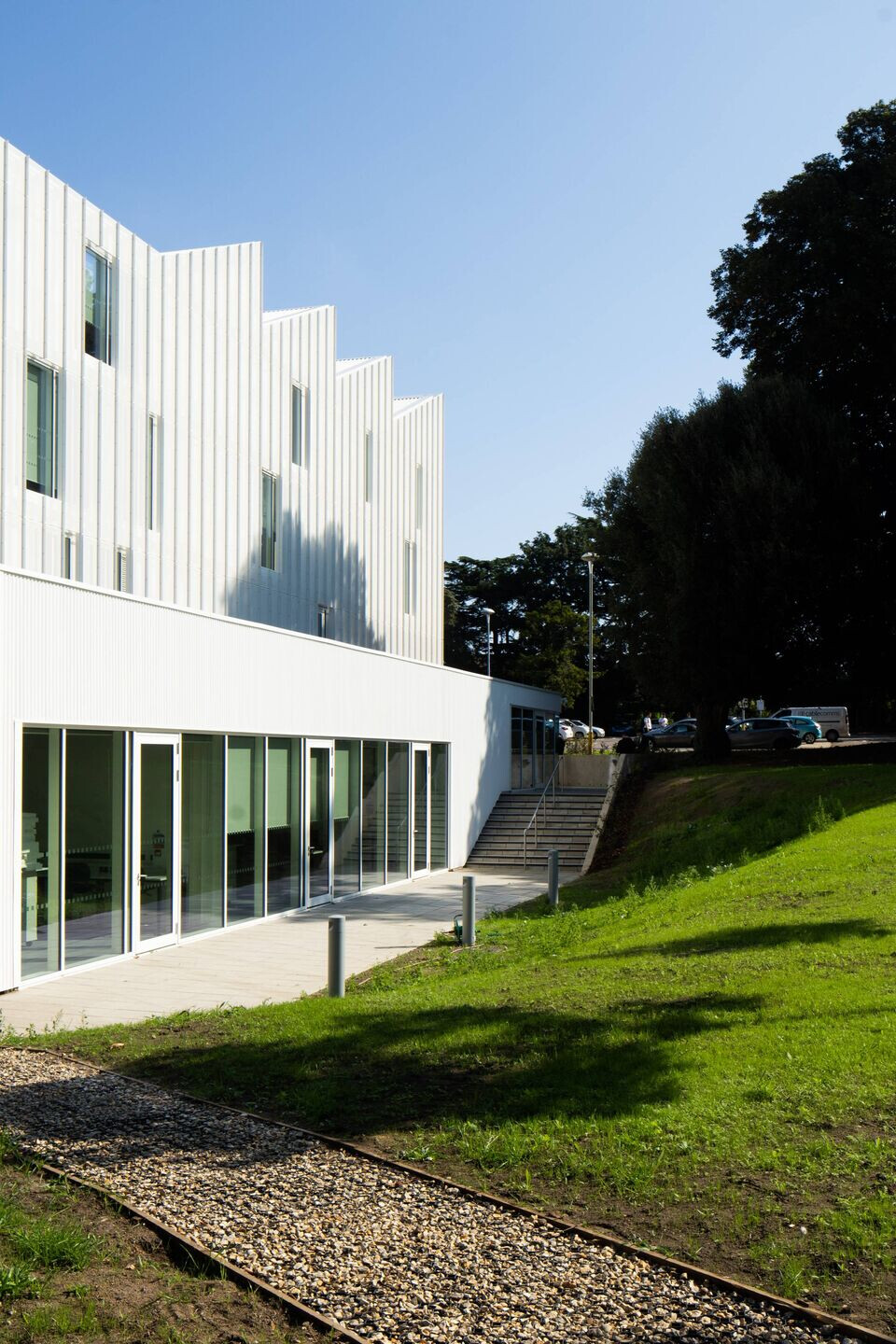
Part-funded by the Government’s Town Deal, the completion of the Digi-Tech Factory makes Norwich the first town in the country to have completed a project as part of its Town Deal programme.With support from New Anglia LEP’s Local Industrial Strategy, the UK Digital Strategy and the Department for Education’s Adult Basic Digital Skills agenda, the number of students studying digital skills courses is set to increase significantly. The completion of the building represents a key milestone in the College’s vision to offer industry-standard digital learning, bringing the college’s digital skills provision into a single, purpose-built space.
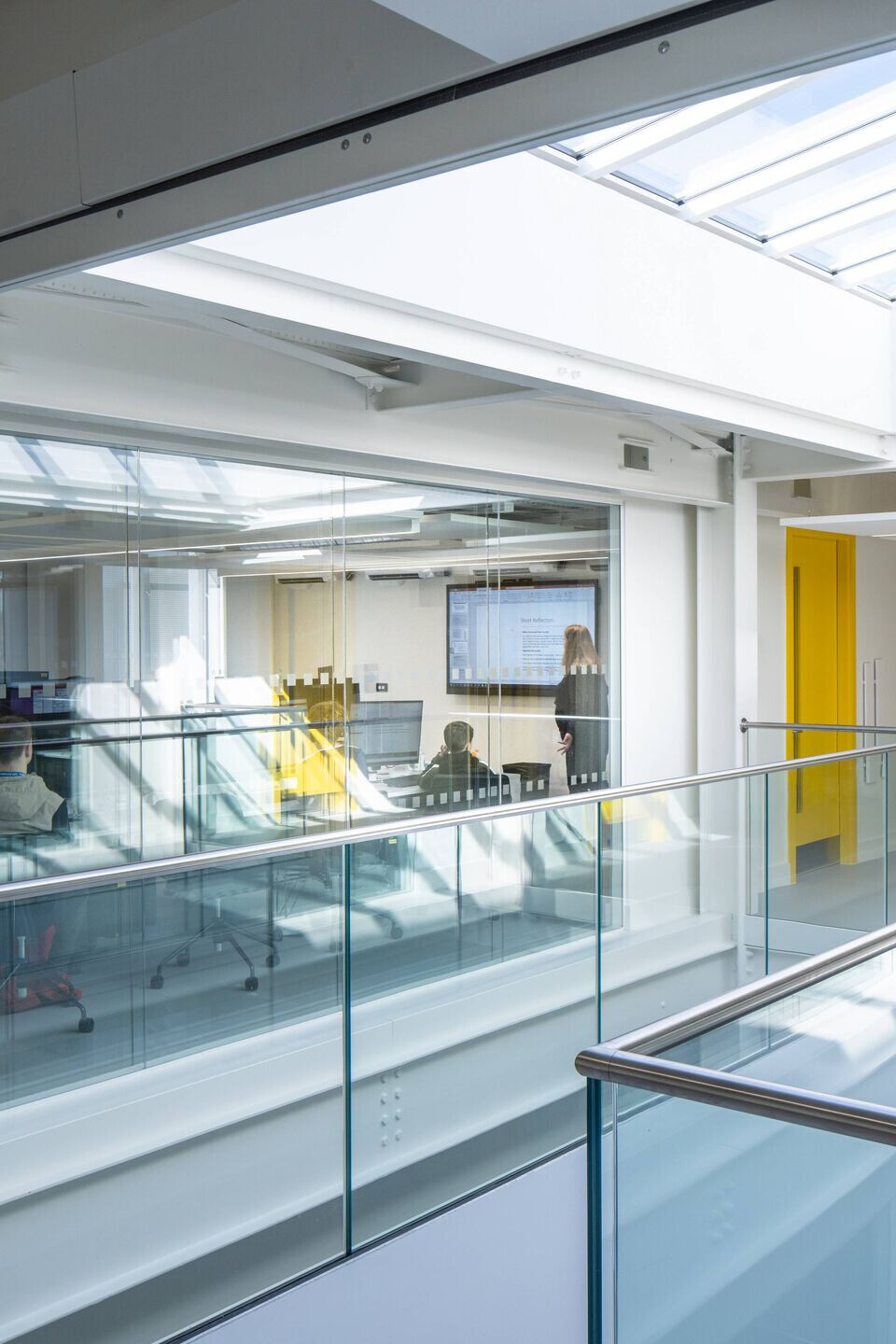
Phil Coffey, Director at Coffey Architects said:
“Holding our practice’s key principles of light and people at the centre of the process, we’ve created an adaptable building that can offer a quality digital learning experience forthe students who use it for years to come. The experience of working with City College Norwich has been a really positive one – it’s been a very rewarding collaboration.”
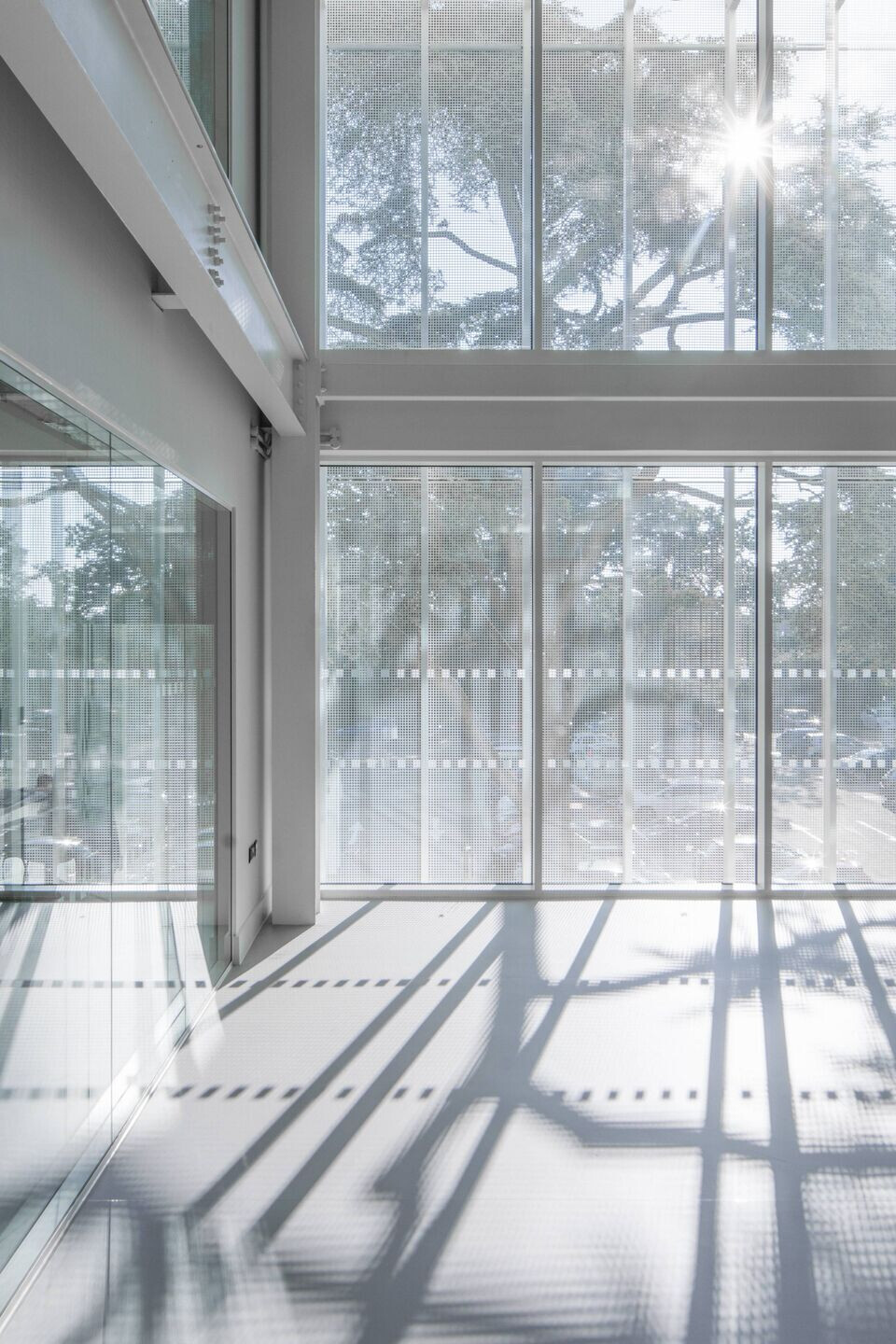
Jon Bonham, Director of Estates and Facilities at City College Norwich said:
“The completed Building has exceeded the outcomes and expectations we set out at in the clients brief. Coffey Architects have produced a landmark building for the College, City and Eastern Region, which provides industry equivalent Digital Facilities in a modern, light and airy building.
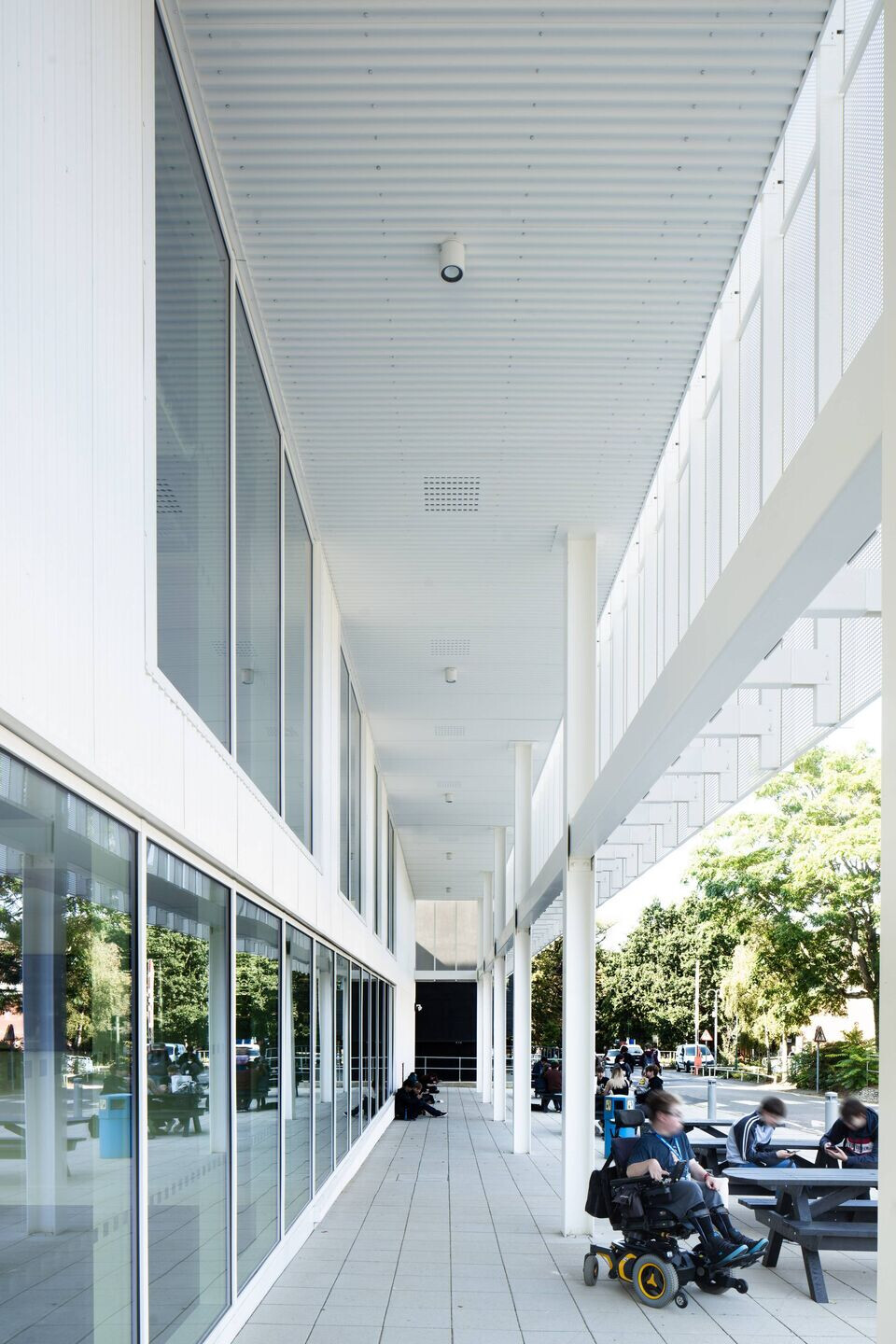
More importantly, our students and staff are delighted with the new Digitech Factory and we have received some excellent feedback:
“It’s got everything, all the technology, all the computers, you need. The actual building itself is an inviting building to be in. It’s light and it’s airy. I quite like all the exposed elements of it, especially with civil engineering, because that’s what we learn about.” - Leanne (Civil Engineering Apprentice)
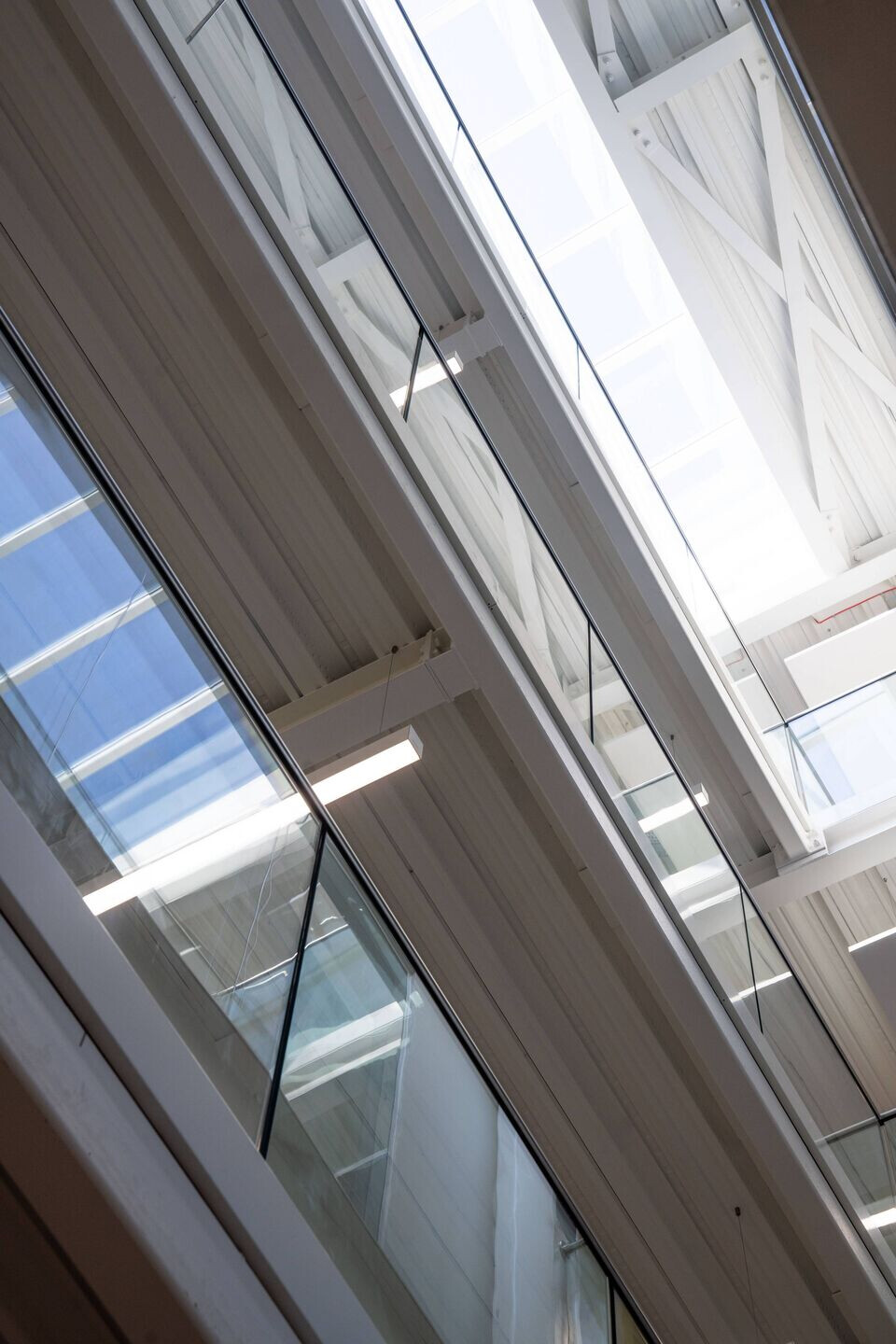
“It’s lovely in here, I really love it. It’s really modern and spacious. It’s a lot more inspiring to be able to work in this kind of environment.” - Ellie-Mae (UAL Diploma in Digital Art, Animation and Games Design)
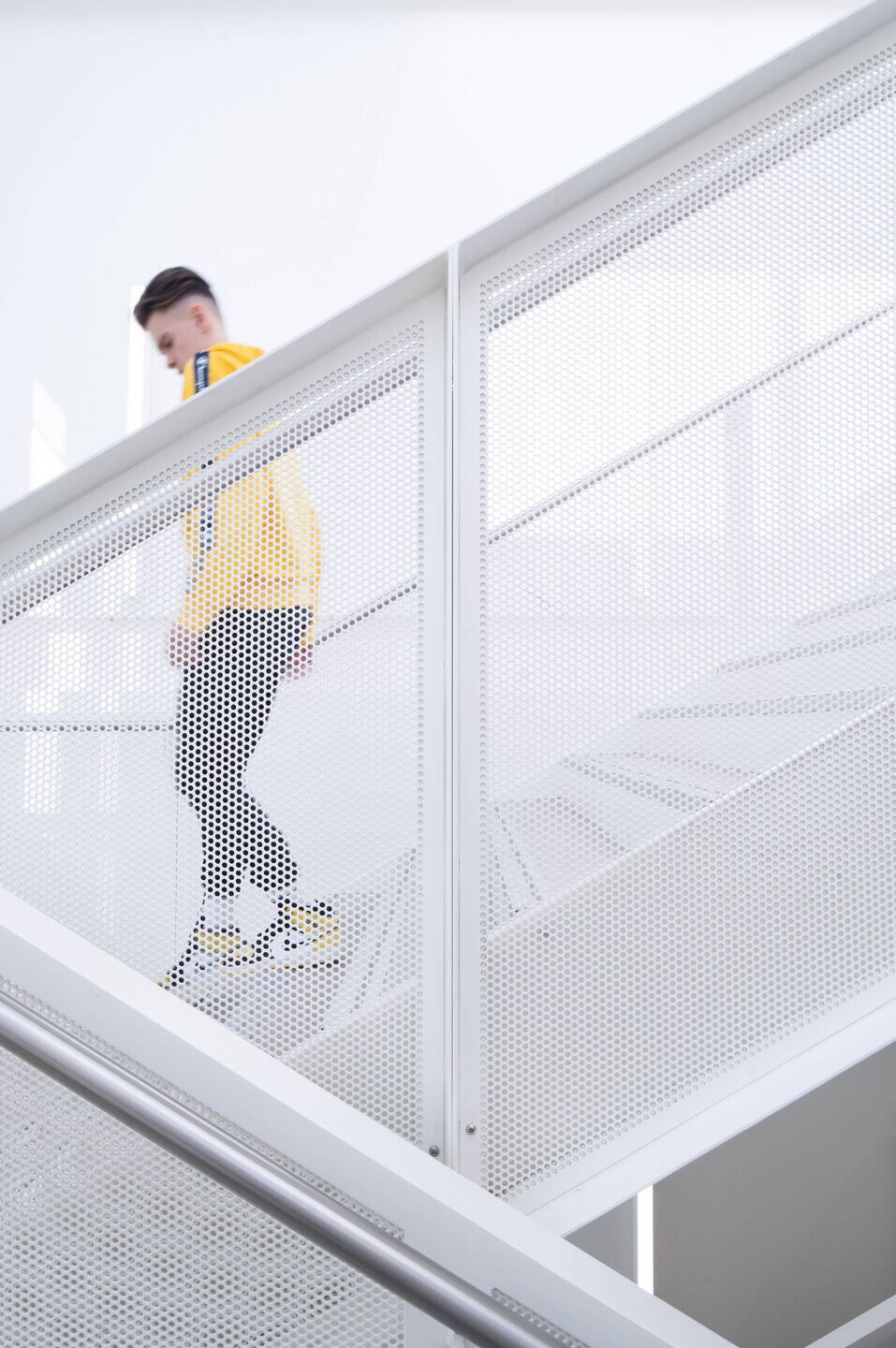
“This building feels like a professional environment. You feel like you are in an actual business, with rooms where you can cooperate with other people better." - Mantas (T-Level Digital Production, Design and Development)
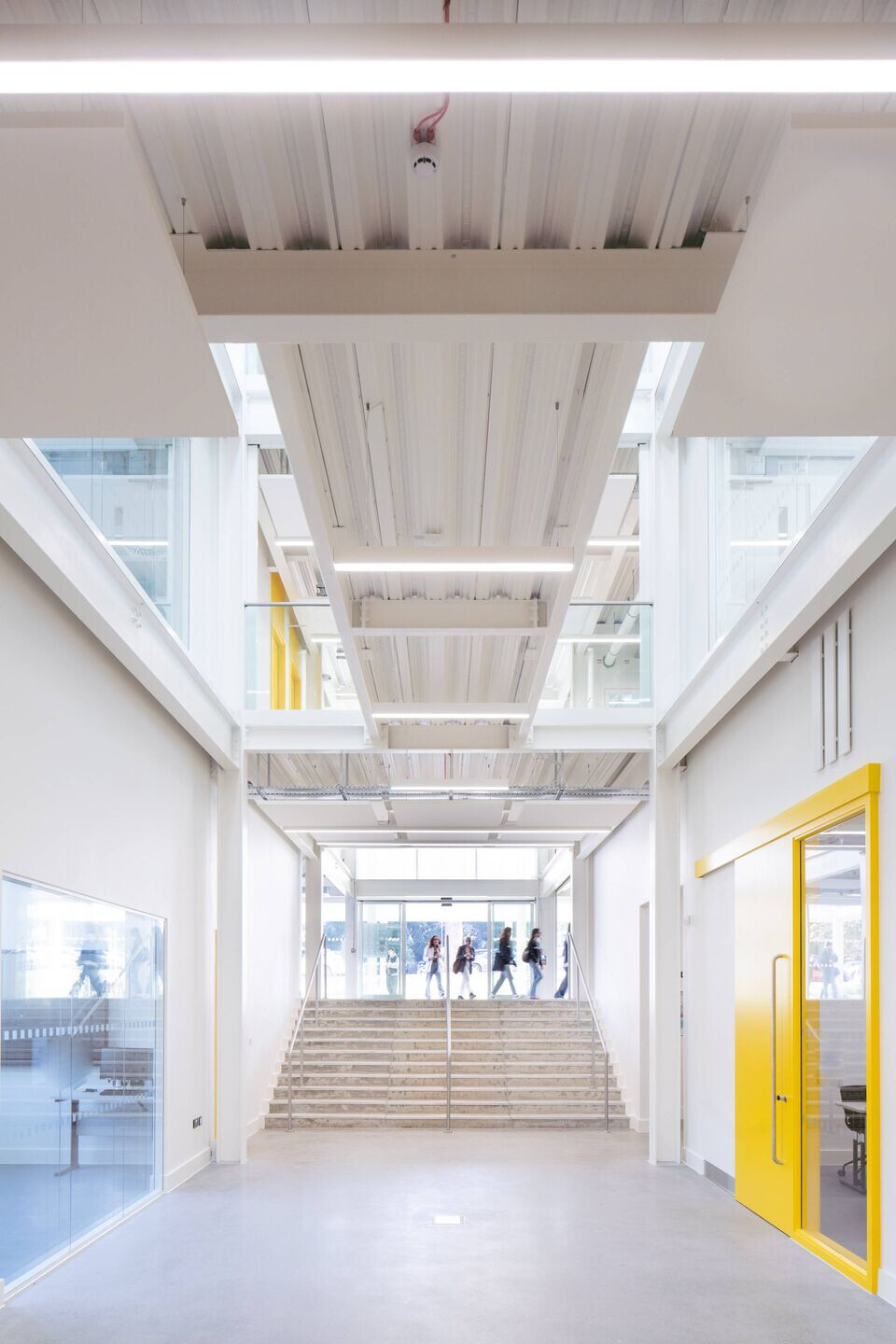
The Coffey team were a pleasure to work with and I congratulate and thank them for delivering a unique building which the College can be truly proud of.”
